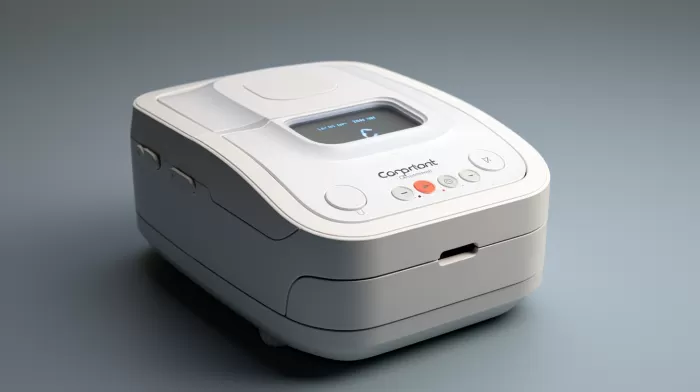Obstructive Sleep Apnea (OSA) is a common condition that can lead to some very serious health issues. Thousands of people experience OSA and aren’t even aware of it. It occurs when your throat muscles relax, obstructing your airway while you sleep. This can cause a whole host of problems, from drowsiness during the day to an increased risk of heart attack and stroke. It’s important to be aware of the symptoms of OSA and seek professional help if you think you might have it. In this article, we’ll take an in-depth look at OSA, its symptoms, potential complications, and effective treatment options.
Know the Symptoms
If you suspect you may have OSA, look out for these key symptoms:
- Snoring, interrupted by pauses in breathing
- Gasping for breath or choking during sleep
- Restless sleep
- High blood pressure
- Depression
- Obesity, especially metabolic syndrome with large waist circumference
- Sexual dysfunction
- Excessive daytime sleepiness
- Large neck size
- Morning headaches
- Poor concentration
- Irritability
- Memory loss
OSA can sometimes be tricky to diagnose because many of these symptoms can also be attributed to other health issues. However, the combination of symptoms should be a red flag to consult with a medical professional. If left untreated, OSA can lead to even more serious health conditions and complications.
Potential Complications
Ignoring OSA or leaving it untreated can result in a range of complications, including:
- Nasal obstruction, causing decreased oxygen and increased carbon dioxide
- Heart disease or stroke
- High blood pressure
- Diabetes
- Liver problems
- Depression and anxiety
With so many potential complications, it’s essential to take OSA seriously and seek appropriate treatment.
Seek Diagnosis and Treatment
If you’re experiencing the symptoms of OSA, it’s crucial to consult with a medical professional and undergo a sleep study. Sleep studies typically involve spending a night in a hospital sleep lab, where physicians can monitor your breathing, heart rate, and brain activity to determine if you have OSA.
There are several treatment options for OSA, including:
- Continuous Positive Airway Pressure (CPAP) machine: This is one of the most effective treatments for moderate to severe OSA. A CPAP machine delivers a continuous flow of air through a mask, keeping your airway open while you sleep. Many people who use a CPAP machine report feeling well-rested and have reduced symptoms of OSA.
- Oral appliances: For those who find a CPAP machine uncomfortable or cannot tolerate it, oral appliances may be a suitable alternative. These devices are custom-made to fit your mouth, and work by either holding your tongue forward or by repositioning your lower jaw to open up your airway while you sleep.
- Laser surgery: In some cases, surgery may be necessary to treat OSA. Nasal coblation is one such procedure, in which a laser is used to remove excess tissue from the throat that may be causing the airway obstruction.
- Medication: In some instances, medication may be prescribed to help control the symptoms of OSA, such as nasal decongestants or anti-anxiety drugs.
It’s important to work closely with your healthcare provider to determine the best course of treatment for your individual needs. Once you find a treatment that works for you, it can drastically improve your quality of sleep, overall health, and overall quality of life.
OSA in Older Men and BPH
Older men are at a higher risk for OSA, particularly if they suffer from benign prostatic hypotrophy (BPH). BPH causes urinary urgency and can lead to a disrupted sleep pattern due to frequent trips to the bathroom. This can exacerbate the symptoms of OSA, making it even more critical for men with BPH to seek diagnosis and treatment for potential sleep apnea.
The Bottom Line
You don’t have to suffer through disrupted sleep and increased health risks due to OSA. By being aware of the symptoms of OSA and seeking appropriate diagnosis and treatment, you can significantly improve your well-being. Don’t let OSA rob you of a restful night’s sleep – take action today to safeguard your health.



